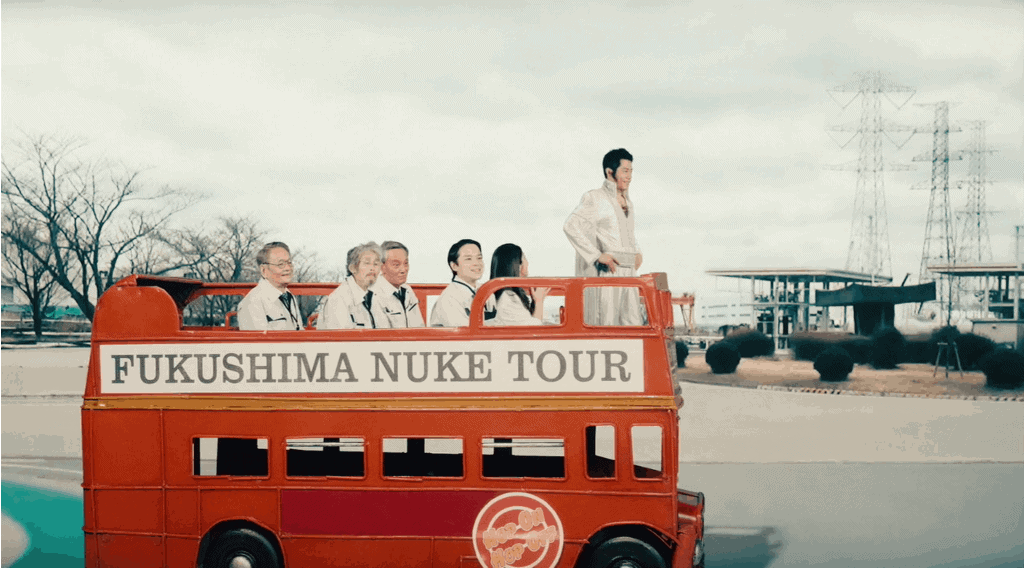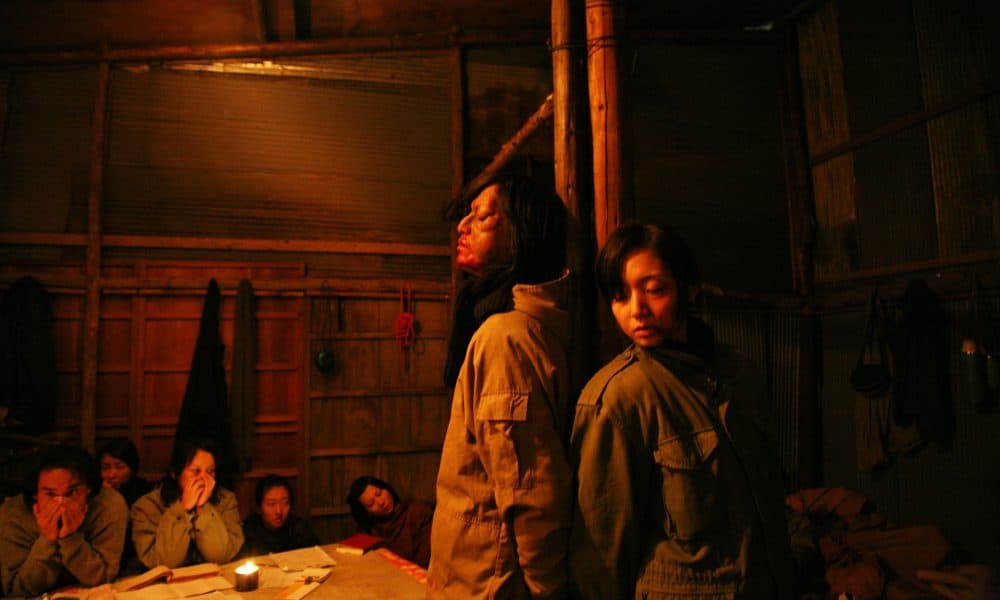The concept that the West, and particularly Europe and the US are some kind of heaven, has been a prevalent one in Asia since time immemorial. At the same time, though, the people who have actually taken the leap do realize that this is not always the case, with a number of movies actually highlighting the fact, with “Everybody's Gotta Love Sometimes” being one of the latest. “My Heavenly City” also moves in the same path, presenting three stories that highlight both the good and the bad of Asians living in the US, and particularly New York City.
Heavenly City will start screening in UK cinemas on 10th November, courtesy of Trinity CineAsia
In the first story, Taiwanese Mavis Fang was supposed to be writing her doctoral dissertation but she decided to take a break to deal with “personal issues”, as she deals with loneliness, depression and a sense of not fitting in, in her new environment. To make ends meet, she signs up for employment as a Mandarin translator for social services, a job that soon proves much more difficult and demanding than she expected. Eventually, though, she meets 16-year-old Xiao Jian, an illegal immigrant who will be soon deported, and who stubbornly refuses to speak to anyone. Mavis feels drawn to the boy, understanding his loneliness, and tries to connect with him.
The second story revolves around Jack who came to New York from Taiwan to study computer science, but the school work and his parents' pressure make him depressed. He finds an outlet in hip hop dancing, but even that proves a tricky endeavor at first. That is until he meets Lulu, a girl from Singapore who is filming dance performances. The two eventually fall in love, but Lulu has some issues that soon surface.
Check also this interview
The third story focuses on Jason and Claire, who immigrated to the United States 20 years ago and live in a high end residential area in Brooklyn with Jasper, their 9-year-old son. The couple belong to the upper middle class and are financially secure, but Jasper lives with Asperger's, ADHD and bipolar disorder. A violent incident in the park between Claire and Jason has the police coming in and later highlights how Jason feels guilt for not being able to help his son and his wife. He decides to take time off from work and get professional care for Jasper, which is when the couple manage to take a brief vacation and reconnect. Their problems, however, do not seem to go away.
Throughout the three stories, Yu Sen-I makes a point of highlighting that the West, and particularly New York, which in the eyes of many is the cradle of western civilization, offers both benefits and problems, essentially like any other places on Earth. Apart from this main comment, which does linger towards the good as the movie unfolds, each segment seems to focus on some particular aspects of living there and the issues that they result in.
In that fashion, in the first one, Yu deals with the concept of immigration, insurance companies, and how the language gap has proven a problem on the one hand, but has also given the opportunity to people like Mavis to find a line of work. The way the corporate world functions, and the frequent harshness of ICE are also presented, although the director makes a point of not presenting any one as villains in the story. The drama here is in general contained, in an approach that works quite well for the movie, as the messages get through more eloquently. Vivian Sung is impressive once more in the role of Mavis, with her presenting her angst in a restrained but eloquent fashion, while the moment she loses her sense of control for the first time is one of the most memorable in the movie.
The second part is, in general, lighter, with Yu focusing on problems that are mostly of psychological nature, at least until Lulu comes into the picture. That there are people eager to exploit and essentially con youths and/or immigrants does come through, however, as much the how difficult it can be for someone to get permanent residency in the US. The hip hop aspect is a nice touch, entertaining-wise, also as a solution and way out for the problems Jack faces, but the impact of this part is definitely on a lower level than the other two. The chemistry of Keung To as Jack and Jessica Lee as Lulu is quite good here, in probably the best aspect of the segment.
The third part essentially moves away from the problems Asians (foreigners if you prefer) face, as the concept of the handicapped child and the toll it takes on their parents is a universal one. The approach here is the most dramatic of all, with the violent scene in particular being shocking in its presentation, and definitely among the most memorable in the movie. The interactions of the parents with their child appear realistic, even in their intense drama, but there are moments where the segment crosses to melodramatic paths, with the monologue of the father and the scene by the sea being the most characteristic samples. At the same time, it is easy to say that this part is the most well-shot, with Grant Greenberg's cinematography presenting a number of very appealing images, with the scene in the beach actually being the most beautiful in the film. Logan Cheng as Jasper is the one who steals the show here, acting-wise.
Omnibuses were always a difficult form to implement in a movie, particularly since the quality of all segments is very rarely equal, and “Heavenly City” is not an exception. On the other hand, Yu Sen-i definitely succeeds in presenting a variety of issues immigrants (and locals to an extend) face in the US in a fashion that is both entertaining and realistic, while the three-story approach actually makes the film easier to watch.















